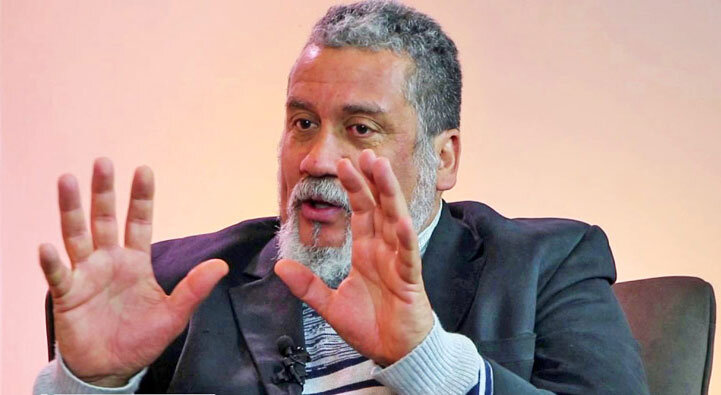Qassem Soleimani: Eternal hero

SANTIAGO, Chile- "Qassem Soleimani had exposed himself to the possibility of martyrdom on countless occasions, without fearing anything or anyone in the path of God, in the fulfillment of his duty and in Jihad."
These were the words spoken by Iran's Leader, Seyed Ali Khamenei, at the home of martyr Lieutenant General Qassem Soleimani hours after the terrorist attack that cost this general’s life on January 3, 2020. When it comes to this hero of our time, the Lieutenant General Soleimani is a role model – (the highest level of human being) - as another mythical figure in the struggles for people's resistance, such as Ernesto Che Guevara has also been revered.
This undoubtedly immediately relates him to our Latin America and through President Raisi's tour to Venezuela, Nicaragua and finally Cuba reveals that close relationship between our struggle and that of Iran. What a beautiful symbiosis, beyond cultural, historical, religious and geographical differences but sovereignty and dignity as standards unite us.
General Soleimani, known as the "hero of our time," was a Heydar, a living symbol in his martyrdom, representing the path of life he took in defense of the sacred, fulfilling his duty as commander of the Quds Forces and sacrificing his knowledge and even his life for freedom and self-determination, in terms of sovereignty and dignity for the peoples of Western Asia. General Soleimani was a revolutionary man with a deep love for life who confessed to his daughter that he had chosen God's path.
Despite this, external attacks on his homeland forced him to participate in the defense of it, where he stood out as a strategist with unparalleled courage. He became a monumental catalyst for the advancement and development of the resistance axis, now transformed into a formidable enemy against the alliance between imperialism and Zionism. His confession to his daughter demonstrates his profound love for his country, his people, and humanity. Like Che Guevara's farewell letter from Cuba - read by Fidel after learning of
Ernesto Guevara's death in Bolivia - which showed the world their generosity in sacrificing even their lives to fight on other lands.
In Latin America, the prominent figure of Qassem Soleimani has risen from Rio Bravo - at the border between Mexico and the United States in North America - to Tierra del Fuego in the Southern Cone. Especially at a time when great revolutionary leaders of our
American continent are needed. I always remember, in every interview conducted, whether in written articles or in conversations with those who want to know about Soleimani and his anti-imperialist character, that "Soleimani was a loving father of five children, a devoted husband, a patriot, a brilliant military strategist, a bold politician, a servant of his people and those who defend their sovereignty and seek total self-determination. A visionary man dedicated undoubtedly to the cause of freedom for peoples. I say this not only because of what his trajectory means in the Islamic Revolution in Iran but also because of his entire life's journey that is expanding throughout the planet," including our Latin America.
With his death, Soleimani rose to the height of great heroes of our time who believed that their example would end with their death but failed miserably. There is no forgiveness or forgetting regarding the criminal act against Soleimani. His physical departure breathed more life into the resistance struggle, its political and military movements and organizations. The people have elevated his image; they carry him on their flags and banners; he is there on the border between Lebanon and occupied Palestinian territories in Maroun al-
Ras showing with his finger that this land is Palestine and will be recovered. He is on the streets of Tehran, Beirut, Quds and Baghdad, and Damascus. In Yemen and Latin America.
I reiterate what I have stated in previous opinions regarding Soleimani and Latin America. "What has been the influence of General Soleimani on our continent despite the strong media, political, and ideological barriers that portray the powers of arrogance and hegemony as champions of freedom? The assassination of General Soleimani allowed us to visualize the enormous influence that his political and military leadership had, not only in Western Asia but also in the political movements of Latin America that oppose the United States, such as Cuba, Nicaragua, Venezuela, as well as powers like Brazil and Mexico that show more independence from Washington's dictates every day.
Soleimani had a popular political and military personality both in Iran and abroad. His death marked a fundamental and crucial reference point that had not been seen since the assassination of Commander Ernesto Che Guevara. "Qassem Soleimani managed to raise self-esteem not only for the resistance forces in Western Asia but also to serve as an example for societies in Cuba, Venezuela, for movements and organizations that suffer imperial harassment every day. And to demonstrate that we are capable of facing any type of force no matter how powerful it may be. The martyr Lieutenant General has laid the groundwork for the final battle that will allow us to destroy the nefarious influence of imperialism and those who support it."
"My daughter, I am very tired," Soleimani says in his beautiful and profound letter to his daughter. "I haven't slept for thirty years, but I no longer want to sleep. I put salt in my eyes so that my eyelids dare not close, lest that helpless child's head be cut off in my carelessness. When I think that scared little girl is you, or Narges or Zeinab, and that the teenager or young man lying in the slaughterhouse having their head cut off is my Hossein or Reza, what do you expect me to do? To just observe? To not care? To do business? No, I cannot live that way." What beautiful words.
